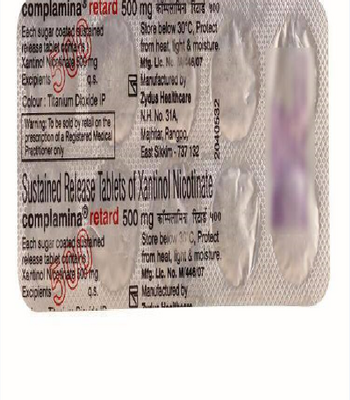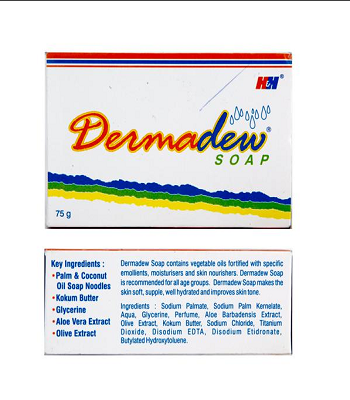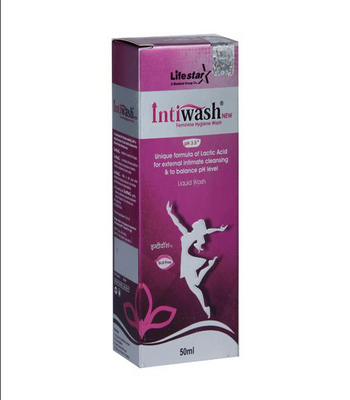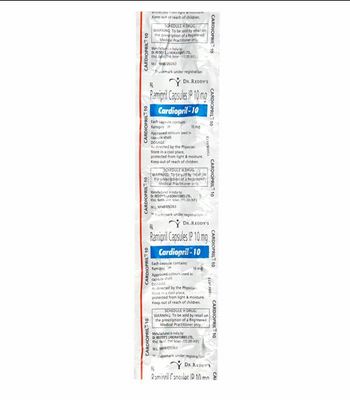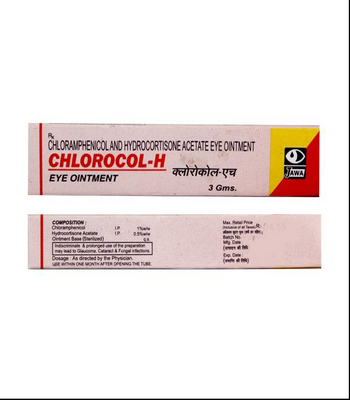Fadep Capsule 10'S
INR 30.70INR 30.70
Category :
Sub Category :
MG Details :
FLUOXETINE 20MG
Packing :
10 Capsule(s) in a Strip
Mfr by:
Winsome Laboratories Ltd
Country of Origin:
NA
Specifications
FADEP contains Fluoxetine which belongs to a group of medicines called selective serotonin reuptake inhibitors (SSRI) antidepressants
FADEP contains Fluoxetine which belongs to a group of medicines called selective serotonin reuptake inhibitors (SSRI) antidepressants
It is used to treat adults with,
Major depressive episodes
Bulimia nervosa
Obsessive compulsive disorder (also called OCD)
Tell your doctor before taking this medicine, if you:
Are allergic (hypersensitive) to FADEP or any of the other ingredients of this medicine
Are undergoing Electroconvulsive therapy (ECT)
Have suffered from abnormally elevated mood (mania) in the past
Have any liver or kidney problems
Suffer from congenital heart defect
Have diabetes
Have a history of bleeding disorders
Have raised intraocular pressure or are at risk of acute narrow-angle-glaucoma
Are depressed or have anxiety disorders you can sometimes have thoughts of harming or killing yourself
Are an alcoholic
Caution should be exercised when used during pregnancy, especially during late pregnancy or just before giving birth
This medicine is excreted in breast milk and may cause side effects in babies
Talk to your doctor as soon as possible if you are pregnant or might be pregnant, planning to become pregnant or breast feeding
FADEP should not be used in children and adolescents under the age of 18
Do not drive or use machinery unless you are sure that you are not affected
Always take this medicine exactly as your doctor has told you
Do not chew or crush the medicine
Swallowed the medicine whole, with a drink of water
Dose may depend on your age and disease condition
The recommended dose are as follows
Depression
The recommended dose is 20 mg daily. Your doctor will review and adjust your dosage if necessary within 3 to 4 weeks of the start of treatment. When appropriate the dosage can be gradually increased up to a maximum of 60 mg
Bulimia nervosa
The recommended dose is 60 mg daily
OCD (Obsessive Compulsive Disorder)
The recommended dose is 20 mg daily
Your doctor will review and adjust your dosage if necessary after 2 weeks of treatment. When appropriate the dosage can be gradually increased up to a maximum of 60 mg
If no improvement is noted within 10 weeks, treatment with FADEP should be reconsidered
If you take more FADEP
If you take too many capsules, go to your nearest hospital tell your doctor straight away
Symptoms of overdose include: nausea, vomiting, seizures, heart problems (like irregular heartbeat and cardiac arrest), lung problems and change in mental condition ranging from agitation to coma
If you forget to take FADEP
If you forget to take your dose, do not worry. Take your next dose the next day at the usual time
Do not take a double dose to make up for a forgotten individual dose. Taking your medicine at the same time each day may help you to remember to take it regularly
If you stop taking FADEP
Keep taking your medicine until your doctor asks you to stop. Do not stop taking your medicine without asking your doctor first, even when you start to feel better
Like all medicines, this medicine can cause side effects, although not everybody gets them.
Allergic reaction such as rash, itching, swollen lips, tongue or face, wheezing or shortness of breath
Faster breathing or heart rate, sweating, muscle stiffness or tremor, confusion, extreme agitation or sleepiness
Prolonged and painful erection
Irritability and extreme agitation
Heart problems, such as fast or irregular heart rate, fainting, collapsing or dizziness upon standing which may indicate abnormal functioning of the heart rate
Inexplicable vaginal bleeding
Inexplicable bruises or bleeding or bleeding in the gastrointestinal tract
Fits
Uncontrollable movements
Signs of liver inflammation (abdominal swelling, distention or bloating, diarrhoea, discolored urine and stool, fatigue, headache, itchy skin, joint pain, loss of appetite, low-grade fever, malaise and lethargy, nausea with or without vomiting, yellowing of the skin and whites of the eye)
Small bleedings of skin and mucosa, painless (rarely itching) skin swelling, acute, inflammatory skin disease, heavy skin reactions Stevens-Johnson Syndrome, erythema multiforme, toxic epidermal necrolysis (Lyell syndrome)
Poor appetite
Change in taste
Nervousness, anxiety
Feeling tensed
Decreased sex drive or sexual difficulties (including low sexual performance and ejaculation problems)
Sleep problems or unusual dreams
Tremor
Drowsiness
Blurred vision
Flushing
Yawning
Indigestion, vomiting
Joint pains
Passing urine too frequently
Feeling shaky or chills
Weight loss
Headache, dry mouth
Feeling detached from yourself
Abnormal thinking
Abnormally high mood
Orgasm problems
Teeth grinding
Disturbances of motion sequence or coordination
Muscle twitching
Involuntary impaired balance
Memory impairment
Enlarged pupils
Ringing in the ears
Low blood pressure
Nose bleeds
Difficulties in swallowing
Hair loss
Cold sweat
Feeling hot or cold
Low levels of sodium in the blood
Low numbers of blood cells
Low number of manic reactions (untypical wild behavior)
Hallucinations
Uproariousness, aggression
Panic attacks, stuttering or agitation
Buccoglossal syndrome
Arrhythmias and QT prolongation
Inflammation of blood vessels and vascular
Dilation
Pharyringitis
Oesophageal pain
Lung problems
Sensitivity to sun light
Muscle aches
Producing breast milk
Serum sickness (rash, joint aches, fever, swelling of lymph nodes, shock, low blood pressure)
Impaired ADH secretion
Increased prolactin levels in the blood
Abnormal liver function tests
Tell your doctor, if you are taking, have recently taken or might take any other medicines such as:
Lithium, pimozide, haloperidol or phenothiazines (e.g. chlorpromazine) for mental illness
Sparfloxacin, moxifloxacin, erythromycin IV, pentamidine (anti-biotics, used to treat infections)
Halofantrine (used for anti-malaria treatment)
Iproniazid, linezolide and methylthioninum chloride (methylene blue) (non-selective MAOI’s – monoamine oxidase inhibitors)
Metoprolol (used for heart failure)
Nebivolol (used to treat high blood pressure)
Propafenone (used to treat abnormal heart rhythms)
Atomextine (used to treat attention deficit hyperactivity disorder - ADHD)
Risperidone (used to treat psychotic disorders)
Diuretics (water tablets)
Desmopressin (used to reduce amount urine produced by kidneys)
Oxcarbazepine (used to treat epilepsy)
Mefloquine, chloroquine (anti-malaria)
Astemizole, mizolastine, mequitazine, cyproheptadine (anti-histamines)
Flecainide or encainide for the heart
Carbamazepine or phenytoin for epilepsy or other conditions
Any other medicines for depression e.g. tricyclic anti-depressents, SSRI’s (selective serotonin reuptake inhibitor)
Selegeline for Parkinson’s disease
Tramadol for pain relief
Bupropion (used to help stop smoking)
Triptans (e.g. sumatriptan) for migraine or cluster headaches
Medicines to thin the blood (e.g. warfarin)
Non-steroidal anti-inflammatory drugs (NSAIDs, e.g. ibuprofen)
Tryptophan (an amino acid)
Tamoxifen (used to treat breast cancer)
Keep this medicine out of reach of children
Do not use this medicine after the expiry date
Store at room temperature (15-25°C)
Disclaimer:
The contents of this website are for informational purposes only and not intended to be a substitute for professional medical advice, diagnosis, or treatment. Please seek the advice of a physician or other qualified health provider with any questions you may have regarding a medical condition. Do not disregard professional medical advice or delay in seeking it because of something you have read on this website.


